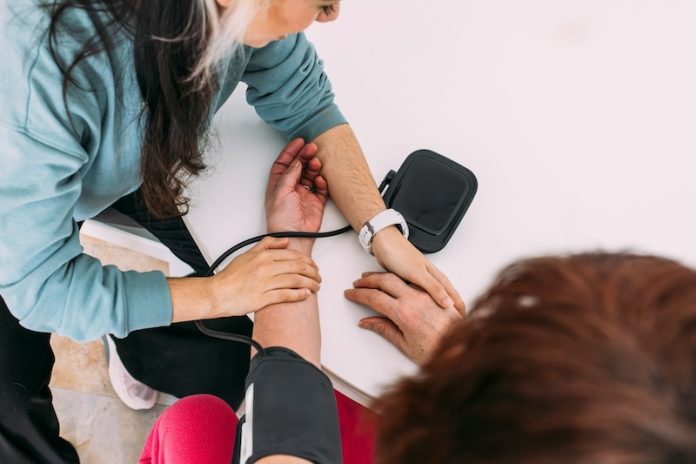
A recent study by the European Sudden Cardiac Arrest network has raised concerns about the safety of a widely used drug for high blood pressure, nifedipine.
This drug, typically prescribed to manage hypertension, may pose more significant risks than previously understood, particularly concerning sudden cardiac arrest—a condition where the heart abruptly stops beating, cutting off blood flow to the brain and other critical organs.
Sudden cardiac arrest is particularly frightening because it strikes without warning and can be deadly if not treated immediately. In Europe, it accounts for half of all heart-related deaths and one-fifth of all natural deaths.
When a cardiac arrest occurs, the person loses consciousness, and their breathing becomes irregular or stops altogether, as the heart fails to pump blood efficiently.
Sometimes, symptoms like chest pain, difficulty breathing, or nausea might precede the arrest, but immediate medical intervention is crucial to save lives.
To understand the relationship between high blood pressure drugs and sudden cardiac arrest, researchers compared two commonly used medications: nifedipine and amlodipine. They examined 2,503 patients who used these drugs and compared them to 10,543 healthy individuals from a Dutch registry.
The findings were surprising and concerning: patients taking a high dose of nifedipine (60 mg/day) had a higher risk of sudden cardiac arrest. In contrast, no similar risk was observed with amlodipine.
To ensure the accuracy of these results, the researchers conducted a follow-up analysis with another group of patients and controls from the Danish Cardiac Arrest Registry. The results were consistent, reinforcing the potential risk associated with high-dose nifedipine.
This discovery is significant, considering these medications have been used widely for many years to benefit countless patients.
Previously, research had not identified this risk, likely because studying sudden cardiac arrest is challenging due to its sudden and unexpected nature.
This new study suggests a need for greater caution and more extensive research to confirm these findings and understand the underlying mechanisms better.
For patients with high blood pressure, this news does not mean they should stop taking nifedipine immediately.
However, it highlights the importance of being vigilant and discussing any concerns with their healthcare providers. It is essential to weigh the benefits and potential risks of continuing nifedipine, particularly in high doses.
High blood pressure, or hypertension, is a common condition characterized by increased force of blood against artery walls. If not managed, it can lead to severe health issues like heart disease, stroke, and kidney disease.
Medications such as nifedipine and amlodipine are commonly prescribed to control blood pressure, along with lifestyle changes like a healthy diet, regular exercise, and stress management.
Understanding the medications we use is crucial, especially for prevalent conditions like high blood pressure. This study sheds light on potential risks associated with nifedipine, urging patients and doctors to adopt a more cautious approach.
While further research is needed to confirm these findings, it is vital for individuals to stay informed about their medications and maintain open communication with their healthcare providers.
Proper management of high blood pressure through informed decisions and medical guidance can significantly reduce the risk of severe complications like sudden cardiac arrest.
Patients should be proactive in understanding their treatment options and potential risks, ensuring they make the best choices for their health.
If you care about high blood pressure, please read studies about unhealthy habits that may increase high blood pressure risk, and drinking green tea could help lower blood pressure.
For more information about high blood pressure, please see recent studies about what to eat or to avoid for high blood pressure, and 12 foods that lower blood pressure.
Copyright © 2024 Knowridge Science Report. All rights reserved.



